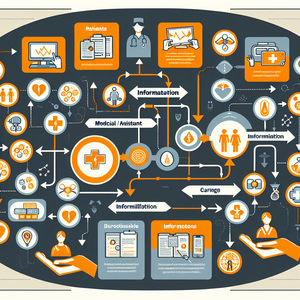Discovering the Future of CTA Careers: Embracing Innovation in Clinical Trials

The integration of technology into clinical trials represents more than just a passing trend; it signifies a profound shift in how research is conducted. Automation tools have become indispensable, streamlining a myriad of processes and alleviating the administrative burden that often weighs heavily on CTAs. For example, the transition from traditional paper-based methods to electronic data capture (EDC) systems has revolutionized data collection and monitoring. This shift not only enhances operational efficiency but also significantly improves data accuracy—an essential factor for the success of clinical trials.
Data Analytics: The Key to Informed Decision-Making
In an age where big data reigns supreme, data analytics has emerged as a cornerstone of effective clinical trial management. CTAs equipped with data analytics skills can deliver invaluable insights that influence trial design and execution. By analyzing various data points—such as patient demographics, treatment responses, and adverse event reports—CTAs can help tailor trials to better meet the needs of specific populations.
Preparing for the Future: Skills and Strategies for Aspiring CTAs
As the CTA role continues to evolve, so too must the skill set of those entering this field. Aspiring CTAs should prioritize developing a diverse range of competencies that encompass both technical and soft skills. Proficiency in data analytics software, EDC systems, and AI applications will be crucial for success. Additionally, a solid understanding of regulatory requirements and compliance standards can enhance their credibility and effectiveness in the role.
The future of CTA careers is undoubtedly promising, filled with opportunities for those willing to embrace change and innovation. As automation, AI, and data analytics reshape the landscape of clinical trials, CTAs who adapt to these developments will not only excel in their roles but also play a crucial part in the success of clinical research.
Clinical Research Coordinator (CRC)
Pharmaceutical companies, contract research organizations (CROs), and academic research institutions
Core Responsibilities
Oversee the planning, implementation, and management of clinical trials, ensuring adherence to protocol and regulatory requirements.
Coordinate participant recruitment, informed consent processes, and trial logistics.
Monitor trial progress and maintain accurate documentation of all trial-related activities.
Required Skills
Strong understanding of Good Clinical Practice (GCP) and regulatory standards.
Excellent organizational skills and attention to detail.
Proficiency in clinical trial management systems (CTMS) and data entry software.
Clinical Data Manager (CDM)
Biotech firms, CROs, and healthcare technology companies
Core Responsibilities
Design and implement databases for clinical trial data collection and management, ensuring data integrity and compliance.
Conduct data validation and quality control to identify discrepancies and ensure resolution.
Collaborate with clinical teams to generate reports and analyze data for trial outcomes.
Required Skills
Proficiency in statistical software (e.g., SAS, R) and EDC systems.
Strong analytical skills and a background in data analysis or statistics.
Familiarity with regulatory requirements related to data management.
Clinical Trial Manager (CTM)
Pharmaceutical companies, medical device manufacturers, and CROs
Core Responsibilities
Lead the planning and execution of clinical trial projects, managing timelines, budgets, and resources.
Facilitate communication between stakeholders, including sponsors, sites, and regulatory bodies.
Develop and implement strategies for risk management and issue resolution during trials.
Required Skills
Proven project management experience, preferably in clinical research.
Strong leadership and team management capabilities.
Knowledge of therapeutic areas relevant to the trials being conducted.
Clinical Research Associate (CRA)
CROs, pharmaceutical companies, and academic medical centers
Core Responsibilities
Monitor clinical trial sites to ensure compliance with study protocols and regulatory guidelines.
Conduct site initiation, monitoring visits, and close-out visits to support research teams.
Review and verify trial data for accuracy and completeness, ensuring documentation is maintained.
Required Skills
In-depth knowledge of clinical trial processes and regulations.
Strong interpersonal skills for effective communication with site personnel.
Ability to travel frequently to various trial sites.
Regulatory Affairs Specialist
Pharmaceutical companies, biotech firms, and regulatory consulting firms
Core Responsibilities
Prepare and submit regulatory documents to health authorities for clinical trials and product approvals.
Monitor and interpret regulatory changes to ensure compliance with local and international regulations.
Collaborate with cross-functional teams to develop regulatory strategies and submissions.
Required Skills
Strong understanding of regulatory requirements across different regions (e.g., FDA, EMA).
Excellent written and verbal communication skills for preparing regulatory documentation.
Critical thinking and problem-solving abilities to navigate complex regulatory landscapes.


